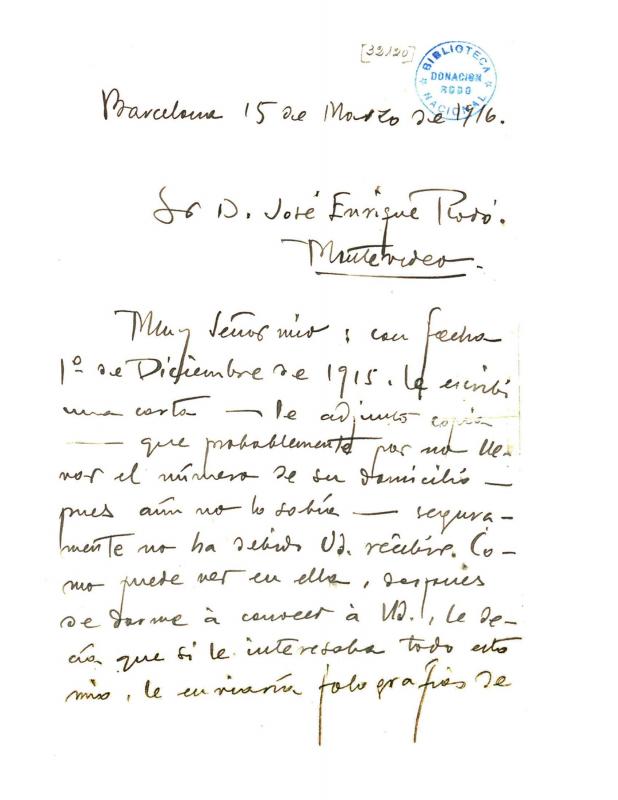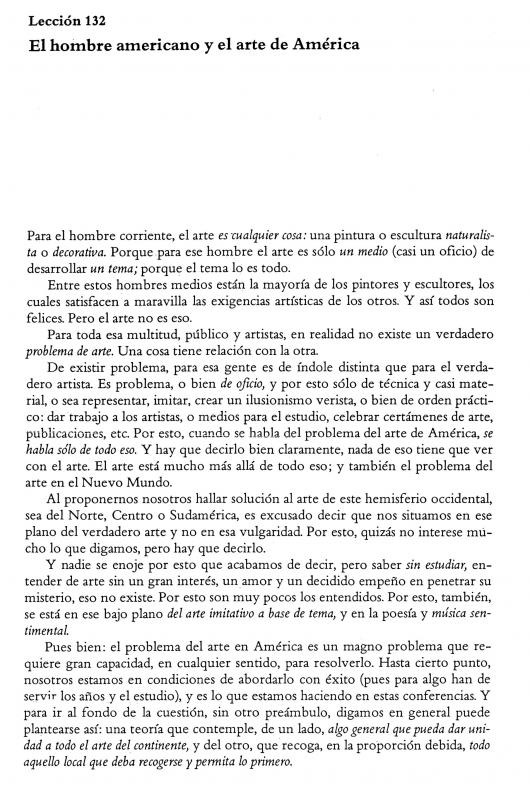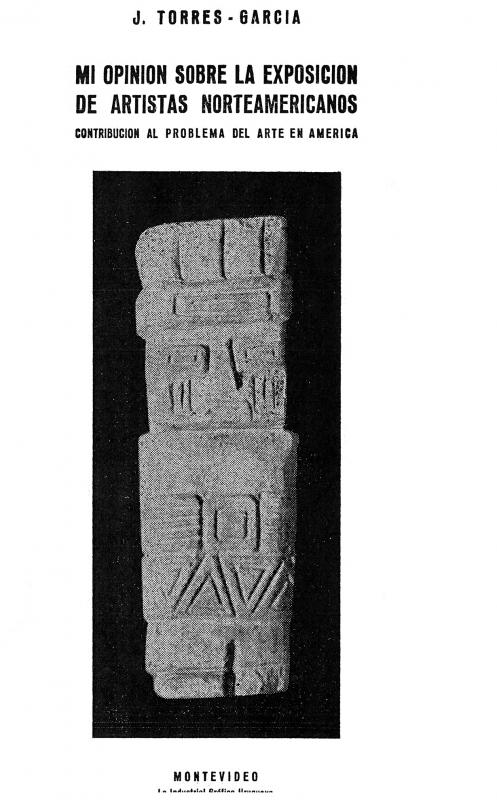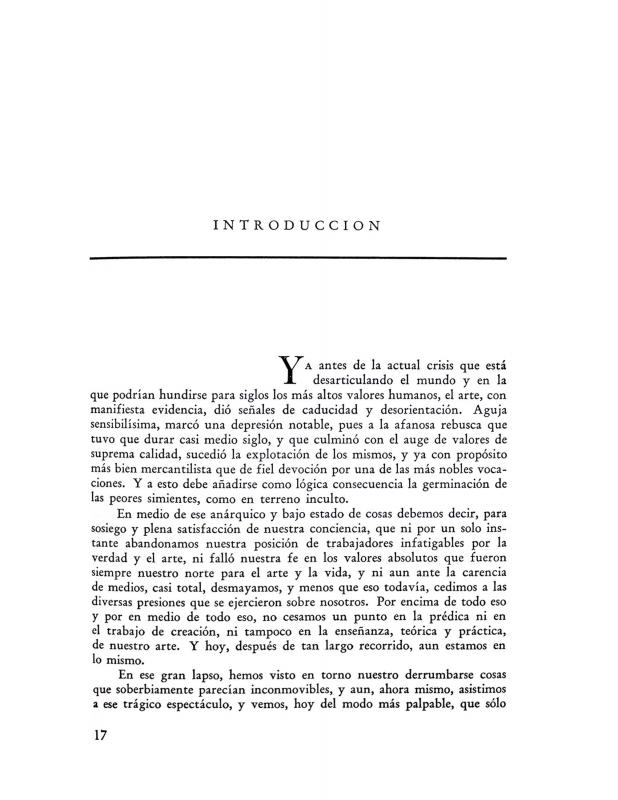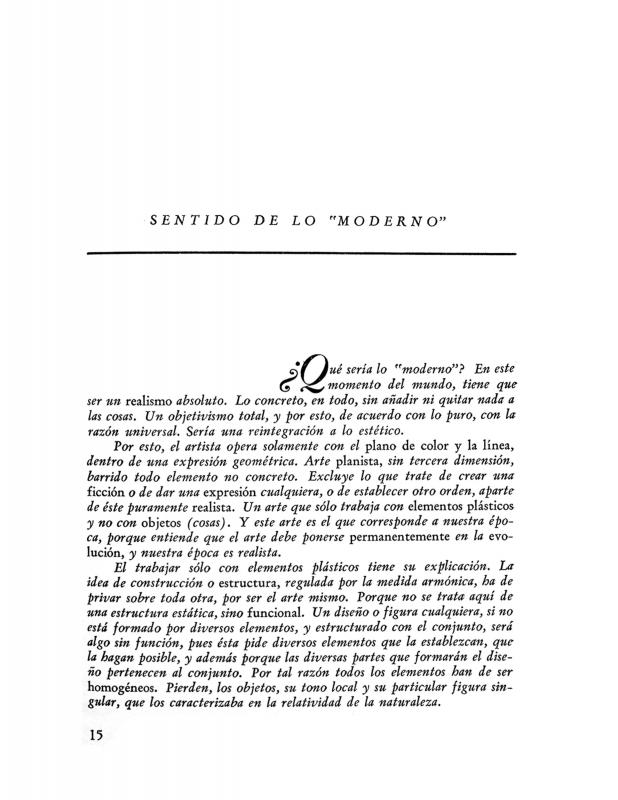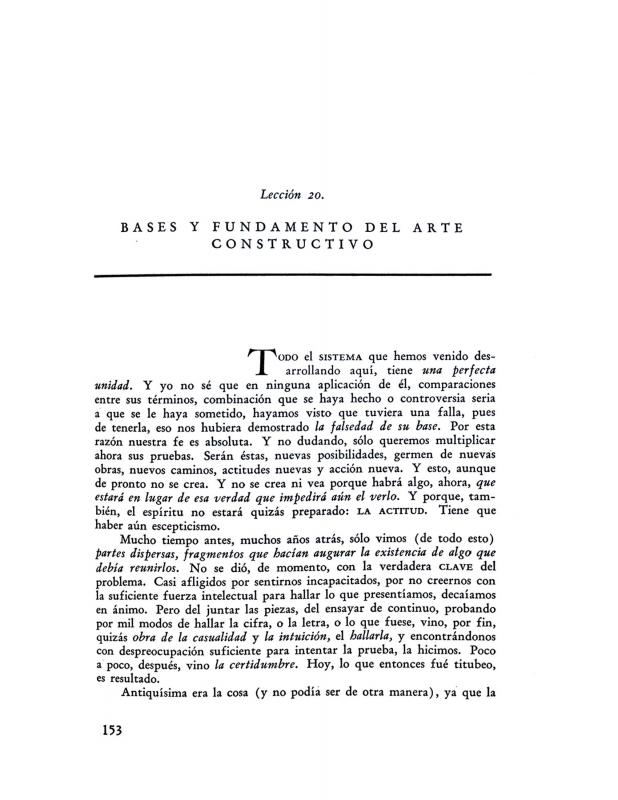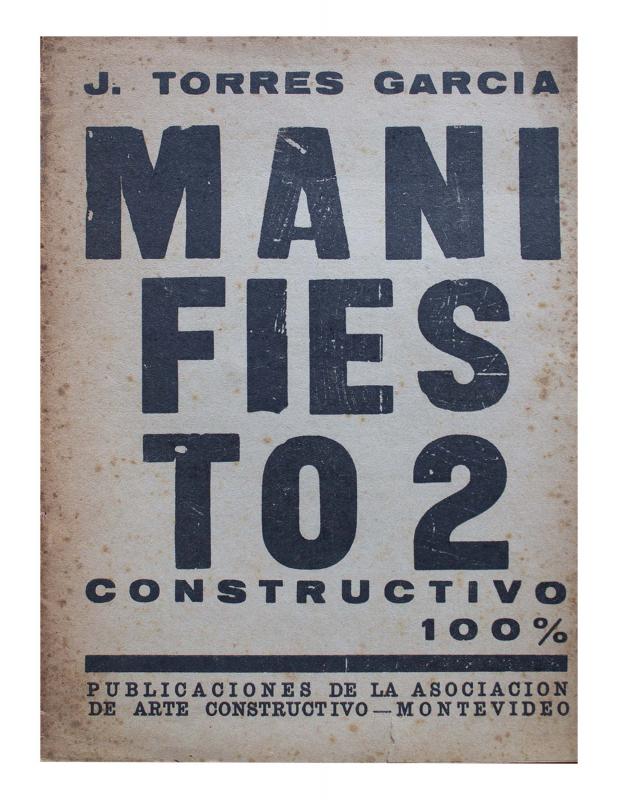In the early years of the twentieth century Joaquín Torres García (1874–1949) was living near Barcelona. At the time, while European art was experiencing a renewal created by the avant-garde, JTG expressed his interest in and affinity for Catalonian Noucentisme. This movement, which sought to connect with Catalonia’s Greco-Latin roots, was strongly influenced by nineteenth-century symbolism, German Romanesque idealism, and a derivative of Neo-Platonic thinking. Taking refuge in a “Mediterranean Arcadia,” JTG had explored archaic cultures as a source of myths and symbols. In his early works he had turned to Greco-Latin traditions in search of attributes that lay beyond the boundaries of painting. It could be said that his classicist leanings revealed esoteric, mystic meanings that were hidden behind the idea of the “myth.” He spent twenty-six years in the town of Terrassa, north of Barcelona, where he excelled as an artist and moved in local intellectual circles. In this letter to the writer José Enrique Rodó (1871–1917), JTG expresses his admiration for and affinity with the Uruguayan essayist, as a (literary) modernist intellectual and as a thinker who hewed to Greco-Latin classicism at a time when a new spiritualist idealism challenged nineteenth-century positivism. JTG states his desire to be involved in Uruguayan art, fulfill his commitment to Uruguayan intellectuals, and correspond with Rodó [on that subject, see in the ICAA digital archive (doc. no. 1247430) and (doc. no. 124746)].
[As complementary reading, see the following articles written by Joaquín Torres García: “Con respecto a una futura creación literaria” (doc. no. 730292); “Lección 132. El hombre americano y el arte de América” (doc. no. 832022); “Mi opinión sobre la exposición de artistas norteamericanos: contribución” (doc. no. 833512); “Nuestro problema de arte en América: lección VI del ciclo de conferencias dictado en la Facultad de Humanidades y Ciencias de Montevideo” (doc. no. 731106); “Introducción [en] Universalismo Constructivo” (doc. no. 1242032); “Sentido de lo moderno [en Universalismo Constructivo]” (doc. no. 1242015); “Bases y fundamentos del arte constructivo” (doc. no. 1242058); and “Manifiesto 2, Constructivo 100%” (doc. no. 1250878)].

